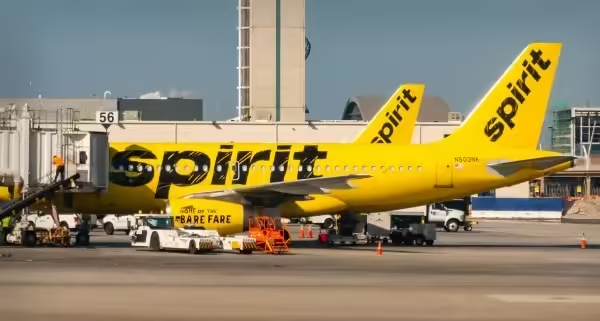
Spirit Airlines is reportedly considering a strategic shift that could see it moving away from one of its key markets: the ultra-low-cost sector. This potential move comes as the airline re-evaluates its position in the highly competitive aviation industry, particularly in light of its ongoing merger with JetBlue Airways.
Historically, Spirit has been synonymous with ultra-low-cost travel, offering rock-bottom fares while charging extra for amenities like seat selection, baggage, and in-flight services. This model has been central to Spirit’s identity, allowing it to cater to price-sensitive travelers and grow rapidly in the market. However, with the impending merger with JetBlue, Spirit may be looking to redefine its market approach.
Industry analysts suggest that Spirit could be considering a shift towards a more hybrid model, blending elements of both low-cost and traditional full-service carriers. This would involve offering a slightly enhanced travel experience, potentially including more inclusive pricing models and improved customer service, while still maintaining competitive fares. Such a move could help Spirit attract a broader customer base, particularly business travelers and those seeking a middle ground between low-cost and premium services.
The rationale behind this shift could be to align more closely with JetBlue’s business model, which, while still cost-conscious, emphasizes customer service and offers more amenities than traditional ultra-low-cost carriers. By moving away from the ultra-low-cost market, Spirit could position itself as a more versatile airline, better suited to compete in various market segments.
While no official announcement has been made, Spirit’s potential move away from the ultra-low-cost sector indicates a significant shift in its strategic direction. As the airline navigates the complexities of the merger and the evolving airline industry, its focus may be on finding new ways to remain competitive and profitable in a post-merger landscape.